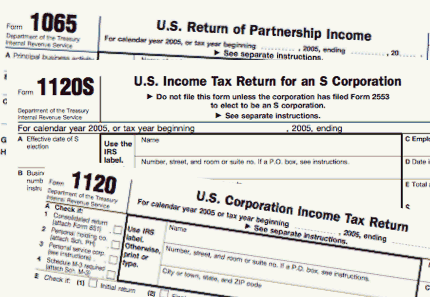With the IRS laser-focused on enforcement, many partnerships will find themselves subject to their first IRS audits under the new procedurally complex partnership audit rules. Under these rules, the default is that the partnership pays an entity-level tax called an “imputed underpayment” (IU) on any adjustments.
This means, unless certain steps are taken, the current partners would bear the tax even if they weren’t partners for the year under audit. To navigate these complex rules and ensure the correct tax is paid by the correct partners, the partnership and its representative must make a number of time-sensitive strategic decisions.
Here are the five time-sensitive actions that a partnership or its representative should take within 30 days of receiving the notice of selection for examination (NOSE):
- Identify the Partnership Representative and Determine Whether a Change Is Necessary. The partnership representative (PR) has wide-ranging powers in a partnership audit. The PR can extend the statute of limitations, protest the adjustments or settle with the IRS. The PR’s actions bind the partnership and the partners regardless of any restrictions in the partnership agreement. Upon receipt of the NOSE, the partnership should identify the PR and consider whether a change is necessary. For example, it is common to change the PR if the PR is no longer a partner because the current partners typically want a PR who will have an incentive to ensure that the tax is paid by the audit-year partners, not the current partners.
- Review the Tax Return Under Audit and Consider Filing an Administrative Adjustment Request. The partnership has a very short window after the NOSE to file an administrative adjustment request (AAR) correcting an item on the original return. The partnership may want to file an AAR to correct a mistake because it can push out the adjustments to the audit-year partners without the partners paying “hot” interest (i.e., interest at an increased rate) and reduce the imputed underpayment by taking into account the partners’ tax positions without IRS approval.
- Consult the Partnership Agreement. Partnership agreements often contain requirements that the partners be notified of an audit. The PR will want to consult the partnership agreement for notice requirements and other audit-related obligations or restrictions.
- Evaluate Whether to Revoke an “Election Out.” Certain partnerships may elect out of the partnership audit rules, so that the partners are audited directly rather than in a partnership-level audit. The partnership can (with the consent of the IRS) revoke the election after it receives the NOSE. The partnership may want to revoke the election if the partners do not want to be audited directly, the partnership wants to retain control of the audit or the partnership does not want to give the partners full access to its books and records.
- Contact Outside Tax Counsel. The partnership audit rules are complex and new to both taxpayers and IRS agents. Partnerships and their representatives should contact outside counsel to help them navigate the many traps for the unwary in these rules, as well as protect any privileges that may exist and avoid any potential conflicts of interest.
Thanks for reading CPA Practice Advisor!
Subscribe Already registered? Log In
Need more information? Read the FAQs
Tags: Income Taxes, IRS, Taxes




